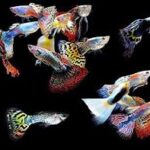Dragons have long been central figures in Chinese mythology, folklore, and classical literature, often symbolizing wisdom, power, divine authority, and transformation. In the great works of classical Chinese literature, such as Journey to the West (西游记, Xī Yóu Jì) and Investiture of the Gods (封神演义, Fēngshén Yǎnyì), dragons appear in various forms, embodying celestial power, spiritual guidance, and even political allegories.

This article explores the role of dragons in these two masterpieces, analyzing their significance in shaping characters, advancing the plot, and reflecting deeper cultural values.
1. The Symbolism of Dragons in Classical Chinese Literature
In classical Chinese literature, dragons are more than mythical creatures; they represent natural forces, divine intervention, and the cosmic order. The five-clawed dragon was a symbol of imperial authority, while lesser dragons controlled rivers, seas, and weather patterns.
Dragons in literature are often depicted as:
- Heavenly guardians – Protecting sacred objects or realms.
- Wise mentors – Offering guidance to heroes.
- Divine warriors – Fighting against demons or rebels.
- Shape-shifters – Transforming into humans or deities.
In Journey to the West and Investiture of the Gods, dragons appear in various forms, reflecting their complex spiritual and cultural meanings.
2. Dragons in Journey to the West
Journey to the West is one of the Four Great Classical Novels of China, written during the Ming Dynasty (16th century) by Wu Cheng’en. It narrates the journey of Tang Sanzang (Tripitaka) and his disciples, Sun Wukong (Monkey King), Zhu Bajie, and Sha Wujing, as they travel to India to retrieve Buddhist scriptures. Along the way, they encounter many supernatural beings, including dragons.
The Dragon Kings and Their Role in the Story
The Four Dragon Kings (四海龙王, Sì Hǎi Lóng Wáng) rule over the East, South, West, and North Seas. They are celestial beings with immense power, capable of controlling weather, oceans, and floods. In Journey to the West, they appear several times, often as divine figures who assist or test the protagonists.
- The Dragon King of the Eastern Sea (东海龙王, Dōng Hǎi Lóng Wáng) is a major figure in the novel. He is involved in Sun Wukong’s early story, particularly when the Monkey King demands a weapon worthy of his strength. The Dragon King reluctantly grants Wukong the legendary Golden Cudgel (金箍棒, Jīn Gū Bàng), a powerful staff that can grow or shrink at will.
- The Dragon Kings also appear when Tripitaka and his disciples face droughts or storms, often requiring divine intervention to restore balance.
Xiao Long (White Dragon Horse) – The Transformed Dragon Prince
One of the most significant dragons in the story is Xiao Long (小龙), the White Dragon Horse. He was originally the son of the Dragon King of the Western Sea, but after committing a grave offense, he was sentenced to death by execution in Heaven. However, Guanyin (the Bodhisattva of Mercy) intervened and transformed him into Tripitaka’s steed.
His transformation from a dragon to a humble horse symbolizes the Buddhist path of redemption, humility, and self-sacrifice. Though he retains his dragon essence, he serves as a silent but loyal companion on the pilgrimage.
The Underlying Message of Dragons in Journey to the West
Dragons in Journey to the West are often depicted as divine yet flawed beings, highlighting themes of cosmic order, karmic retribution, and spiritual discipline. Their dual nature—both powerful and bound by celestial law—reflects the novel’s broader message about the balance of power, wisdom, and morality.
3. Dragons in Investiture of the Gods
Investiture of the Gods (封神演义, Fēngshén Yǎnyì), written by Xu Zhonglin during the Ming Dynasty, is a historical fantasy novel set in the transition between the Shang and Zhou Dynasties. It narrates the struggle between the tyrannical King Zhou of Shang and the righteous warriors who eventually overthrow him, guided by divine intervention.
Ao Guang – The Tyrannical Dragon King
One of the most infamous dragons in Investiture of the Gods is Ao Guang (敖广), the Dragon King of the Eastern Sea. Unlike the noble Dragon Kings in Journey to the West, Ao Guang is depicted as a cruel and arrogant ruler who abuses his power over the waters.
- He demands human sacrifices from coastal villages, terrifying the population.
- He uses his storm powers to intimidate mortals, showing little regard for human suffering.
- He believes himself above the celestial laws, refusing to obey Heaven’s decree.
His downfall comes when Nezha (哪吒), a child warrior and incarnation of a celestial being, defeats him in battle. Nezha’s rebellion against Ao Guang symbolizes righteous defiance against corruption and tyranny. The Dragon King’s failure represents how unchecked power and arrogance lead to destruction.
The Water Dragon Warriors – Divine Beasts of Battle
Unlike the arrogant Ao Guang, some dragons in Investiture of the Gods are depicted as loyal warriors who serve celestial forces. These include Water Dragons (水龙), often seen as protectors of Heaven’s forces.
- Some warriors in the novel wield dragon-shaped weapons, emphasizing their connection to celestial power and destiny.
- Dragon spirits are summoned during battles between gods and demons, reinforcing the mythological grandeur of the story.
The Deeper Meaning of Dragons in Investiture of the Gods
Dragons in Investiture of the Gods represent the duality of power—they can either uphold justice or become tyrannical. Unlike Journey to the West, where dragons often serve as guides or protectors, in Investiture of the Gods, they are more often symbols of both divine justice and moral corruption.
4. The Cultural Legacy of Dragons in These Novels
The depiction of dragons in both Journey to the West and Investiture of the Gods reflects deeper cultural and philosophical beliefs:
- Daoist Balance – Dragons represent the balance between power and wisdom, showing how strength must be controlled by morality.
- Buddhist Redemption – Xiao Long’s transformation into a horse shows how even powerful beings must undergo spiritual humility and redemption.
- Confucian Order – The defeat of Ao Guang reinforces the idea that rulers must act with benevolence, not arrogance.
These novels continue to shape modern literature, film, and folklore, preserving the mystical and moral role of dragons in Chinese storytelling.
Conclusion: The Timeless Role of Dragons in Chinese Classical Literature
Dragons in Journey to the West and Investiture of the Gods are more than mythical creatures—they serve as metaphors for power, morality, and divine intervention. Whether as celestial guides, redeemed spirits, or tyrannical rulers, their presence enhances the narrative, deepens philosophical themes, and reinforces the cultural importance of dragons in Chinese mythology and literature.
These legendary beings continue to inspire generations, proving that the dragon’s spirit—majestic, wise, and eternal—remains one of the most powerful symbols in Chinese storytelling.









